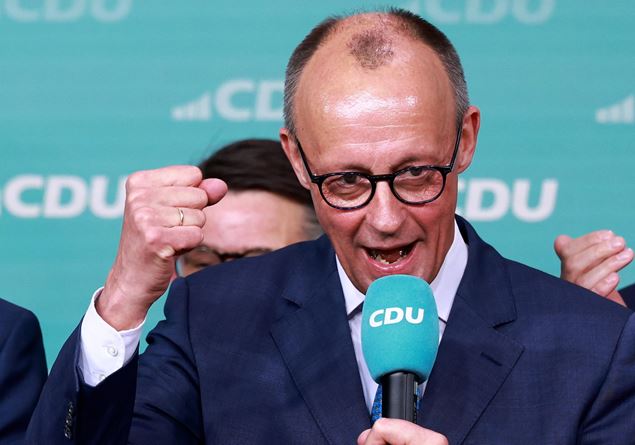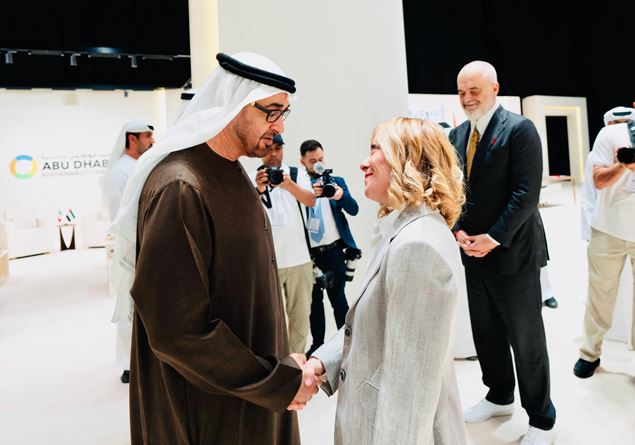Do the reason of state and business prevails over respect for human rights? Where does the scale hang when it comes to finding a compromise between economic interests and democratic principles? The question arises about the recent agreements between Italy and some Persian Gulf countries. Today Mohamed Bin Zayed, president of the United Arab Emirates will carry on the partnership between this country and Italy (we talk about investments for 40 billion dollars). The Emirates are not the only country with which the Meloni government has made agreements. The first was Saudi Arabia, which, among other things, together with the Emirates, will support the Mattei of cooperation project with African economies.
Even if the Emirates are making considerable progress, there are many critical issues regarding human rights in this country. The authorities strongly limit dissent and freedom of the media, rigorously controlling information and online activities. Since there is no open democratic political system, the possibilities of political participation and institutional criticism are very restricted. In addition, many foreign workers, who constitute a significant part of the workforce, suffer often precarious working conditions, exploitation and lack of adequate legal protection.
With Arabia, which has brought agreements for 10 billion dollars, the question is even more critical. One wonders if it was appropriate to collaborate with an autocratic regime known for the repression of civil freedoms. Among other things, in the past, Meloni had severely criticized the government of this country, calling it a “fundamentalist nation” and underlining the lack of rights for women and the presence of the death penalty for crimes such as apostasy and homosexuality .
In reality, the question underlies an eternal need for RealPolitik. The choice to strengthen the partnership with this monarchy was justified by the government as a necessary step to guarantee economic opportunities for Italian companies, strengthen energy safety and consolidate the Italian presence in the Middle East. With the Emirates, about forty agreements will be signed, involving the flower of public and private Italian companies. Strategic agreements with industrial realities such as Leonardo, Snam and Fincantieri have been signed in Arabia to participate in the Saudi energy transition, with a focus on green hydrogen and sustainability. But there is even a collaboration of the Archaeological Park of Pompeii on how to manage museum and archaeological spaces.
The agreements will reflect on the economic growth of our country (of which there is a great need, given that the GDP is substantially stopped). It being understood that Saudi Arabia remains one of the most repressive regimes in the world. The assassination of the journalist Jamal Khashoggi, hideously slaughtered and made to pieces, which took place in the Saudi consulate in Istanbul in 2018, was attributed directly to the restricted circle of the hereditary prince Mohammed Bin Salman. The Sunni country maintains an ambiguous role also in international dossiers, starting with the war in Yemen.
Despite this in recent years Arabia has embarked on a massive “soft power” operation, trying to reposition itself on the international scene as a modern and innovative actor. As Matteo Renzi also has been known, he carried out consultancy as a speaker to various events managed by bodies linked to the Riad government, including the Future Investment Initiative, known as the Davos of the desert, during which he came to define Bin Salman the architect of a new Renaissance.
If in the Emirates the death penalty is only formal (in reality it is switched to life prison or other penalties) in Arabia there are still public executions. So can a country that cuts the head of the condemned in the squares with scimitar strokes and represses political dissent to become a reliable partner for western democracies? It must be said that if we were to use the meter of respect for civil rights to tighten international affairs, of countries with which to dialogue would remain very few. Even the People’s Republic of China is certainly not a model of democracy, yet Italy cultivates the commercial relatives since Marco Polo’s time. And what about Iran, Turkey, Russia, Egypt, the countries of Southeast Asia, Cuba, several countries of South America, such as Venezuela or of the dozens of African states straight from ferocious dictators with whom we entertain business? Also America, on which most of our commercial scale depends, practices the death penalty. Trump has recently signed a law that provides for it for crimes related to terrorism in all federal states.
Moreover, Italy is certainly not the only country to do Businness with Saudi Arabia. Let’s think about the United States, which undertakes reports from 1933, When the American oil oil company Oil of California obtained a concession for the exploration of Saudi oil, marking the beginning of a strategic partnership based on energy. Today Riad is a consolidated partner of Washington in the Middle East. But also France, Germany and the United Kingdom have tightened billionaire agreements in recent years with the Wahhabitan kingdom, especially in the defense sector. For all scruples they come after interest.
The agreements with Riad are the photograph of an Italy that proposes itself as a bridge between Europe and Gulf, in search of maneuvering spaces in an increasingly crowded Mediterranean, in a geopolitics marked by growing tensions and by the need to diversify alliances and supplies.
Perhaps all that remains is to look at half a full glass, which is not consisting only of the economic and social advantages but also by the role that a similar partnership can have in a gradual evolution of Saudi Arabia towards greater opening, perhaps combining commercial cooperation too A political dialogue on civil freedoms and fundamental rights. Task, the latter of our foreign policy.
In the photo Ansa, Giorgia Meloni with Mohamed Bin Zayed








